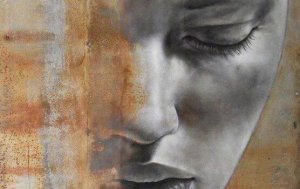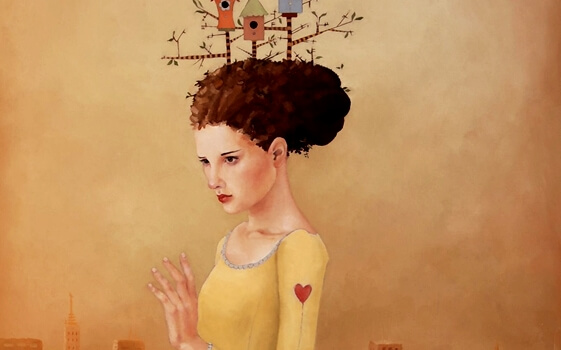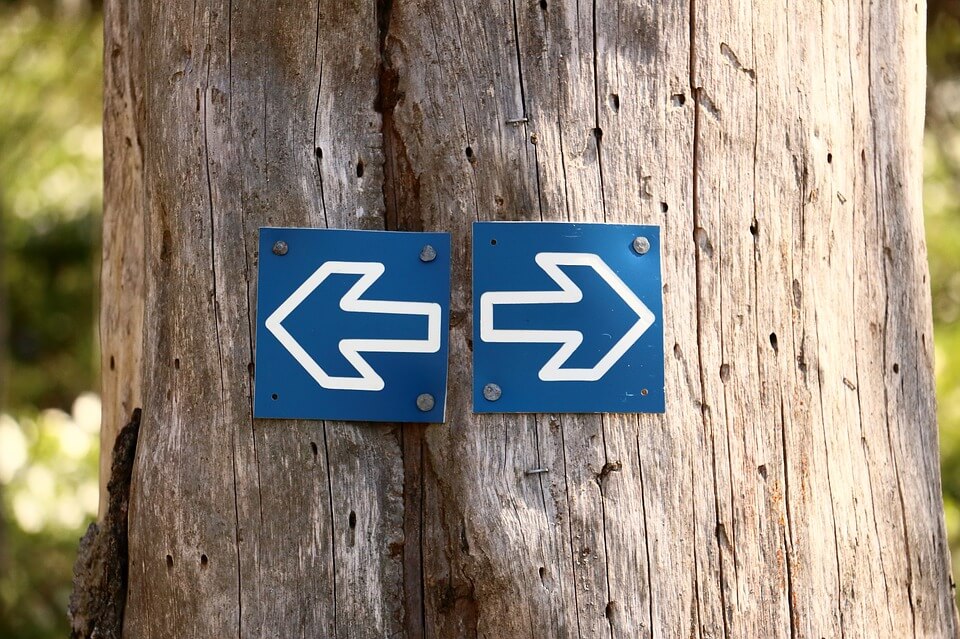Brave People are Those Who Know Fear Best


Written and verified by the psychologist Sergio De Dios González
Spain is still recovering from the terrorist attack that happened in one of its most important cities, Barcelona. The people – anyone in Barcelona, regardless of ideology – feel the losses and wounds as if it happened to them. They also feel fear.
Between all the messages that people have started to follow, one has caught my attention more than others. It’s not very original, it’s repeated a lot, but for those reasons it is interesting. It is the message that we are not afraid. Now, the question is, is it true? Is this really an emotion that is not drawn on the faces of residents and tourists in Barcelona?

Yes, I am afraid
This motto innocently shows everything we still have not learned about emotions. Emotional intelligence is in vogue, it’s displayed in shop windows and is the title of articles. But we are still a long way from having it in our conversations, which in the end is the way we show how we think and feel every day.
Let’s talk about fear, because I have it and my grandmother also has it when she tells me to not even think about setting foot in that part of town. Prudence, caution, fear. Worry that it will happen again, and fear of the unforeseen, of the inevitable, of the random. Of how quickly we will forget images, sirens, or seeking an exit from the trap that moments earlier was just a beautiful park with roses.
Let’s talk about how we don’t want to recognize fear because showing our vulnerability makes us panic, and because since we were children we’ve been taught that showing vulnerability is a sign of weakness. We panic when we hear fear in our inner voices, when we feel vulnerable. So we tiptoe around this and we deny it. But is it really a good idea to deny our fears?

What happens when we deny our fears?
What are the consequences of denying an emotion? In the first place, the energy of this emotion comes from other emotions that we do recognize, such as anger or being irritational.
By having greater energy in our emotions what happens is that we start to lose our control over them, causing acts of senseless anger against those who we think are wrong.
Something that we are reacting to more nowadays is religion, for its association with terrorism.
And what makes us blame the followers of an entire religion? It only helps to empower people who favor cruelty. That is, that almost immediately groups of people who want to make a paradise for those like themselves multiply, sometimes at the cost of their own lives and the lives of those that they “hate”.
We also think that when we ignore our fear we hide our courage. A courage that deserves to be rewarded at least by being recognized by other people. Fear allows us to recognize the strength and merit of citizens who go out onto the street to protest terrorism and wrongdoing, and also allows us to understand those who have not participated in these acts.
Recognizing fear helps us to understand ourselves
Recognizing fear also helps us to understand ourselves and explain our anxiety. By denying our fear, we miss this opportunity and we also run the risk of ending up dissociating from our emotions.
The worry that a terrorist attack can happen is very adaptive. Fear tells us, “be careful!”, something is going to happen, let’s be prepared. In addition, recognizing this allows us to empathize or join people who also feel it. We prevent them from feeling like weirdos, like they are weak, when our emotions are consistent with what has happened. So perhaps we shouldn’t follow those who deny how they feel.
I tell my grandmother that I understand her fear and that I am also afraid. I tell her to not worry, that I will be careful … and she will be calmer because she knows that my behavior will agree with how we both feel. Fear is an emotion that gives us both the opportunity to be brave.
Spain is still recovering from the terrorist attack that happened in one of its most important cities, Barcelona. The people – anyone in Barcelona, regardless of ideology – feel the losses and wounds as if it happened to them. They also feel fear.
Between all the messages that people have started to follow, one has caught my attention more than others. It’s not very original, it’s repeated a lot, but for those reasons it is interesting. It is the message that we are not afraid. Now, the question is, is it true? Is this really an emotion that is not drawn on the faces of residents and tourists in Barcelona?

Yes, I am afraid
This motto innocently shows everything we still have not learned about emotions. Emotional intelligence is in vogue, it’s displayed in shop windows and is the title of articles. But we are still a long way from having it in our conversations, which in the end is the way we show how we think and feel every day.
Let’s talk about fear, because I have it and my grandmother also has it when she tells me to not even think about setting foot in that part of town. Prudence, caution, fear. Worry that it will happen again, and fear of the unforeseen, of the inevitable, of the random. Of how quickly we will forget images, sirens, or seeking an exit from the trap that moments earlier was just a beautiful park with roses.
Let’s talk about how we don’t want to recognize fear because showing our vulnerability makes us panic, and because since we were children we’ve been taught that showing vulnerability is a sign of weakness. We panic when we hear fear in our inner voices, when we feel vulnerable. So we tiptoe around this and we deny it. But is it really a good idea to deny our fears?

What happens when we deny our fears?
What are the consequences of denying an emotion? In the first place, the energy of this emotion comes from other emotions that we do recognize, such as anger or being irritational.
By having greater energy in our emotions what happens is that we start to lose our control over them, causing acts of senseless anger against those who we think are wrong.
Something that we are reacting to more nowadays is religion, for its association with terrorism.
And what makes us blame the followers of an entire religion? It only helps to empower people who favor cruelty. That is, that almost immediately groups of people who want to make a paradise for those like themselves multiply, sometimes at the cost of their own lives and the lives of those that they “hate”.
We also think that when we ignore our fear we hide our courage. A courage that deserves to be rewarded at least by being recognized by other people. Fear allows us to recognize the strength and merit of citizens who go out onto the street to protest terrorism and wrongdoing, and also allows us to understand those who have not participated in these acts.
Recognizing fear helps us to understand ourselves
Recognizing fear also helps us to understand ourselves and explain our anxiety. By denying our fear, we miss this opportunity and we also run the risk of ending up dissociating from our emotions.
The worry that a terrorist attack can happen is very adaptive. Fear tells us, “be careful!”, something is going to happen, let’s be prepared. In addition, recognizing this allows us to empathize or join people who also feel it. We prevent them from feeling like weirdos, like they are weak, when our emotions are consistent with what has happened. So perhaps we shouldn’t follow those who deny how they feel.
I tell my grandmother that I understand her fear and that I am also afraid. I tell her to not worry, that I will be careful … and she will be calmer because she knows that my behavior will agree with how we both feel. Fear is an emotion that gives us both the opportunity to be brave.
This text is provided for informational purposes only and does not replace consultation with a professional. If in doubt, consult your specialist.







